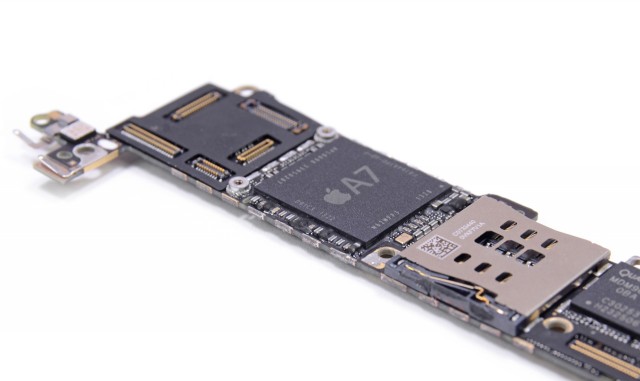A U.S. federal jury found that Apple’s A7 and A8 chips violate a patent belonging to the licensing arm of the University of Wisconsin, forcing the world’s wealthiest smartphone maker to pay up to $862 million out of its $200 billion cash mountain.

The Wisconsin jury reached a verdict Monday (October 12, 2015) that Apple infringed upon U.S. Patent No. 5,781,752, and the trial will now enter a separate damages phase. The patent is owned by Wisconsin Alumni Research Foundation (WARF), a university patent-licensing organization that was suing over copyrights long before such practices became the norm.
WARF sued Sony over patents in 2003, and both IBM and Samsung in 2004. The company also sued Intel in 2008 for the same patent Apple is found to have infringed on, but the case settled just before trial the following year.
When it comes to Apple’s case, WARF said the '752 patent improves the A7, A8, and A8X chips Apple uses in newer iPhones and iPads. Now that the jury has found Apple liable, it will decide the damages; earlier orders from District Judge William Conley written stated that the maximum in damages claimed will be $862.4 million. A third phase of the trial will determine if Apple was a “willful” infringer, and if the company is found guilty, the fines could be tripled. If both the damages and willfulness phases go south for Apple, it could be facing a record-breaking verdict.
The '752 patent issued to four University of Wisconsin computer scientists in 1998 “has been recognized by those in the art as a major milestone in the field of computer micro-processing,” WARF lawyers wrote in their complaint (PDF) filed against Apple last year.
A second WARF v. Apple lawsuit was filed in September 2015, stating that Apple also infringed on the same patent with its iPhone 6S, iPhone 6S Plus, and iPad Pro.
However the damages phase pans out, the WARF v. Apple verdict may encourage other universities to use their patents in court to seek revenue.
Via Ars Technica
Advertisement
Learn more about Electronic Products Magazine





